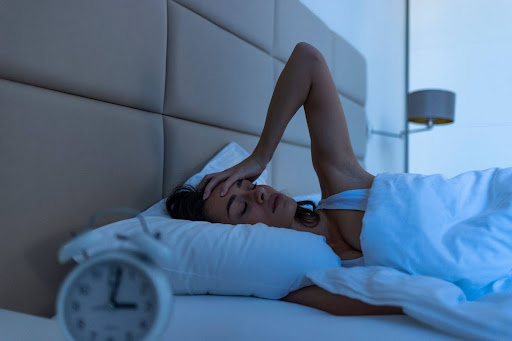
Chances are you’ve experienced the downsides of lack of sleep a few times in your life. Sleep is crucial to keep our bodies running optimally and contributes to our overall wellness. How much we need and what can happen when we do not get enough or get too much can affect how our bodies function, including our fertility.
Sleep And Fertility
Some people think the body shuts down during sleep, and this is where we get the benefits, but that’s not the case. During sleep, your body and mind are doing important work to maintain, restore, and strengthen themselves. So, it stands to reason that sleep can affect pretty much all aspects of your health, and that includes fertility. Carolinas Fertility Institute has put together a guide on how lack of sleep can affect your fertility, and what you can do to increase your z’s.
How Does Lack of Sleep Affect Fertility?
Beyond its impact on general wellness, where better health increases the likelihood of conception, there is not a lot of proven knowledge about the direct effect of sleep on fertility. Nevertheless, studies have found many factors that indicate a possible correlation between the amount of sleep someone gets and their fertility. For detailed information on the effect of sleep on fertility, check out this in-depth article available through the US National Library of Medicine.
Hormone Production
The most significant factor that sleep can affect in relation to fertility is hormone production. If you don’t get enough sleep, your body will produce less of certain hormones and too much of others. The same part of the brain that is responsible for regulating sleep-wake hormones like cortisol also regulates reproductive hormones. Sleep deprivation will signal the body to produce more stress hormones, which is bad for overall health and can throw off levels of estrogen, testosterone, and other reproductive hormones.
Sleep-Wake Pattern
There is also a possibility that your circadian rhythm, or sleep-wake pattern, is linked to reproductive hormones that trigger ovulation in women. It can also interfere with the sperm maturation process. For women, the result is menstrual irregularity that can make it difficult to predict ovulation and prolong the process of trying to get pregnant. In men, sperm that is not as healthy is not as likely to fertilize eggs, and if they do, it can lead to unviable embryos or complications.
Sleep Deprivation
As we already know, lack of sleep is detrimental to your overall health and wellness in ways that might not seem to be directly connected to fertility, but it can all take a toll. For instance, sleep deprivation increases your risk of obesity, diabetes, and cardiovascular disease. These conditions all make getting pregnant more difficult.
How Much Sleep Should I Get?
As with most things, the key to sleep is balance. You want to get in the sweet spot between a lack of sleep and too much sleep. But that leads to the question: how much sleep is just right? We mostly talk about sleep loss or deprivation when discussing sleep issues, but sleeping too much can be a problem, too. As the National Sleep Foundation explains, experts agree that the average person should aim for at least seven hours and no more than nine hours a night. So, the tried and true eight hours of sleep wisdom still holds.
Research conducted by the National Sleep Foundation has found that women getting less than seven hours of sleep are 15% less likely to get pregnant than women who got seven to eight hours. On the other hand, women undergoing a treatment like IVF who got seven to eight hours of sleep were 25% more likely to get pregnant than women who got nine or more.
What Can I Do To Get More Sleep?
If there were a magic formula to get the right amount of sleep, we’d let everyone know. But it’s not so simple. One in three people in the U.S. don’t get enough sleep. If you have insomnia or another sleep disorder, you should work with your healthcare team to address it before getting pregnant. There are many tips you can try to decrease your lack of sleep.
Get Sleep Between 10 pm And 7 am
This is, of course, dependent on your schedule, but if possible, try to get to bed by 10 p.m. You’ll feel better if you can be awake to get sunlight and can sleep when it’s dark. If that’s not possible, you can try things like blackout curtains and sunrise/light alarms to simulate those conditions at off-times.
Lay Off Caffeine By A Certain Time
If you’re trying to get pregnant, you should already be limiting your caffeine intake. But in terms of improving sleep habits, you should stop caffeine consumption at least four to six hours before going to sleep.
Keep Sleep Patterns Regular
Try to go to bed and wake up at the same time each day– even on the weekends. You might be reluctant to give up sleeping in on Sunday morning, but if you get into a routine where you’re getting enough sleep each night, you won’t miss it after a while. A lack of sleep happens less frequently when you have a regular sleep pattern.
At Carolinas Fertility Institute, we want to help you in your fertility journey in every way possible. That includes offering guidance about lack of sleep and recommendations for general wellness and lifestyle habits that can improve your chances of conceiving. And because optimal health and wellness are often the building blocks of any treatment plan for health issues, improving things like sleep will give any fertility treatments you’re undergoing the best chance of working. To make an appointment to talk to our expert team, call us at (336) 448-9100 to make an appointment in the Triad or (844) 686-2233 for our Charlotte office.